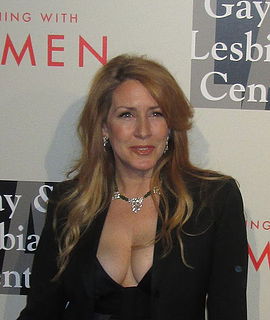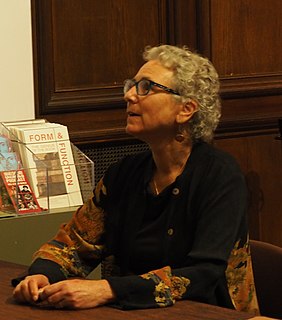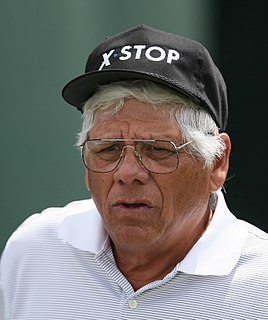A Quote by Joely Fisher
They say seven stages of grief. I think it's more like 77.
Related Quotes
to love life, to love it even when you have no stomach for it and everything you've held dear crumbles like burnt paper in your hands, your throat filled with the silt of it. When grief sits with you, its tropical heat thickening the air, heavy as water more fit for gills than lungs; when grief weights you like your own flesh only more of it, an obesity of grief, you think, How can a body withstand this? Then you hold life like a face between your palms, a plain face, no charming smile, no violet eyes, and you say, yes, I will take you I will love you, again.
The interesting thing about grief, I think, is that it is its own size. It is not the size of you. It is its own size. And grief comes to you. You know what I mean? I’ve always liked that phrase “He was visited by grief,” because that’s really what it is. Grief is its own thing. It’s not like it’s in me and I’m going to deal with it. It’s a thing, and you have to be okay with its presence. If you try to ignore it, it will be like a wolf at your door.
At seven, I played centre-back. When you're so young, though, it's more to enjoy the training and to get a feel for the game. It's not heavy on tactics of a position. We were playing on a half pitch, seven against seven or eight against eight, so they say you're a centre-back, but it's not like the real definition.
We’ve all heard of Dr. Elisabeth Kubler-Ross’ five stages of grief: denial, anger, bargaining, depression, and acceptance. In contrast, I realized, happiness has four stages. To eke out the most happiness from an experience we must: anticipate it, savor it as it unfolds, express happiness, and recall a happy memory.
Grief does not seem to me to be a choice. Whether or not you think grief has value, you will lose what matters to you. The world will break your heart. So I think we’d better look at what grief might offer us. It’s like what Rilke says about self-doubt: it is not going to go away, and therefore you need to think about how it might become your ally.
My father started growing very quiet as Alzheimer's started claiming more of him. The early stages of Alzheimer's are the hardest because that person is aware that they're losing awareness. And I think that that's why my father started growing more and more quiet. I think he felt, 'I don't want to say something wrong.' That's my sense of it.
I think grief is a huge subject; it's one of the things that everybody is going to confront in one way or another. There's been a lot of books written about how Americans have an odd way of trying to defer grief or minimize the need to grieve. People used to have a lot more ritual grief in their lives. For the most part, we think of it as a strictly temporal process: you grieve for a time and then you're over [it], but it's also a spatial process. It travels across a map.


































